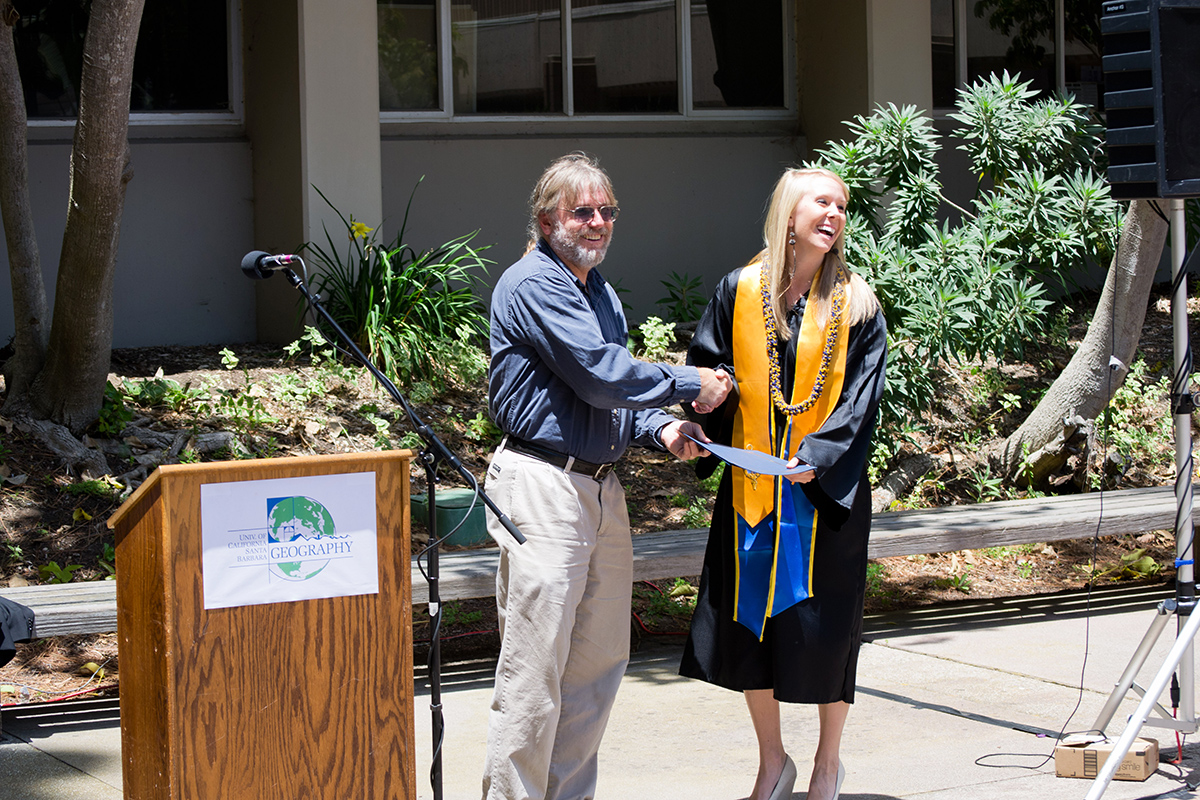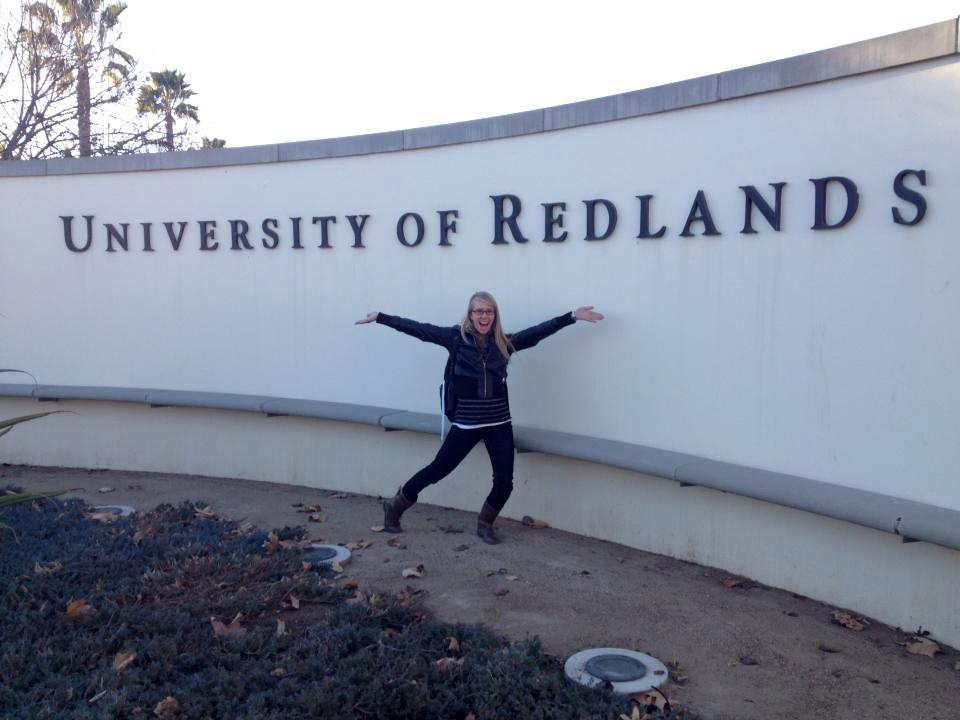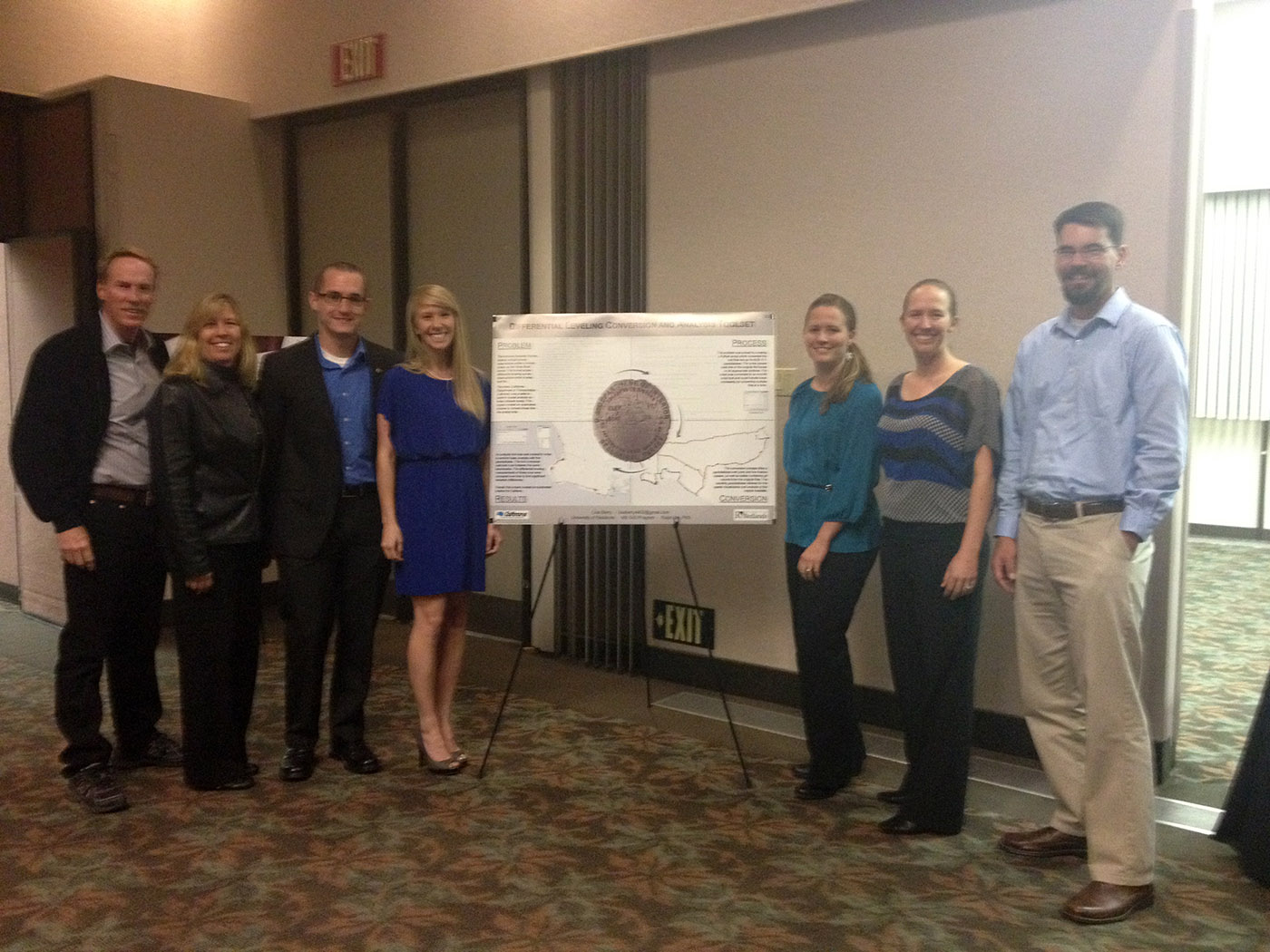“Life after UCSB: Not as Bad as I Thought It Would Be”
Going to school at a beautiful college such as UCSB made going anywhere else difficult. The idea of moving from Isla Vista to anywhere else sent shockwaves through my system and left me with many questions. What kind of help would I get? Would the people be as nice? What on earth would I do with my degree? And most importantly, would the weather be as amazing?
While I was an undergraduate at UCSB, I made friends with one of the spatial@UCSB graduate students, which turned out to change my future more than any class I could take. This graduate student gave me words of wisdom regarding classes, assistance on dealing with difficult professors and students, and, most of all, encouragement to apply for graduate school. This student emphasized that it was not absolutely necessary, but that it could possibly help me get to where I wanted to be.
Graduate school is not meant for everyone and is not guaranteed to land you a dream job, but I can personally say that it was the single most important choice I made towards my career in GIS. The graduate student I mentioned earlier strongly suggested that I apply for the University of Redlands MS GIS Program (Masters of Science in Geographical Information Systems). I took the advice and hoped for the best.
Attending University of Redlands threw me into a world that was very unfamiliar to me. Small classes, 7 week terms (with no breaks in between), moving back into university housing, and dealing with only 4 professors. This was a major jump from the UCSB setting. But it also taught me a plethora of lessons I now consider every single day. Just to name a few: Meeting a client, collaborating schedules with a project manager, communicating cordially with difficult people, communicating your issues or needs, and creating a professional image for yourself.
The program not only taught me how to act professionally, but it obviously taught me a whole new technical skillset for GIS use as well. We had adjunct professors who worked at Esri, we attended colloquiums regarding the newest applications of GIS, we took Esri-led trainings, and we were constantly challenged by the faculty. Overall, the experience taught me personal, professional, and technical skills that will always stick with me.
Ultimately, my experience helped me network and communicate to a point where I was introduced to the hiring manager for Esri. Once a connection was created, I was bounced around until they found a position to match my skillset as well as my interests. I have only been working at Esri for six weeks now, but if this is what being a “real world adult” is like, then I don’t mind at all. I pick my hours, grab a beer with my boss after work, and honestly love coming to work each day. I love making maps, and now I get paid to do it!
GIS is a unique field where the users tend to be passionate and excited about what they do. It allows people to make an impact on the way the world works. Working with GIS is a rewarding and (usually) enjoyable process, and you can see it in the faces of those who call themselves GIS nerds. As I said, graduate school is not for everyone, but if you are passionate about what you do, love to learn, and think your future could benefit from it, then I would absolutely endorse a Master’s program such as the MS GIS program. You never know where you might end up!
Editor’s note: Kudos and many thanks to Lisa for sharing her experiences!





